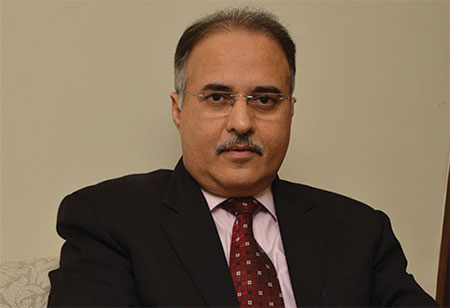Effective Project Management can Transform the Power Sector
By Anil Sardana, CEO & MD,
Tata Power

Anil Sardana, CEO & MD, Tata Power
With the Government of India stepping up its efforts for speedy implementation of various campaigns and programmes aimed at fast-tracking India’s growth towards a more prosperous future, project management has become a highly valued skill. India’s targets for smart cities, financial inclusion, sufficient energy supply and a cleaner country, among others, will materialize with effective project management. Big and fledgling businesses can benefit from project management by either building the expertise internally or outsourcing it.
Disciplined project management starts at the portfolio level, where the strategic vision drives initial investments and where value measures are established. A fully aligned project, programme and portfolio management strategy encompasses the entire organisation, dictating project execution at every level and aiming to deliver value at each step along the way.
Organizations world over recognized the indispensable nature of project management during the recession of 2008. There are many advantages of adhering to project management methods and strategies. Some of them are reduced risks, cut costs and improved success rates—all vital to surviving the economic crisis. An Economist Intelligence report showed that 80 percent of global executives believed having project management as a core competency that helped them remain competitive during the recession.
Scope: India and the Rest of World
India’s power sector is witnessing reforms in Generation, Transmission and Distribution. According to a report by KPMG, there is a need for adoption of sound project management principles in a well-structured framework in the country’s power sector. This is likely to enable the project owner to clearly evaluate all aspects of project execution across the project lifecycle. A sound project reporting system enables the project owner to efficiently keep track of all the aspects of project execution thus helping ensure problems are addressed and resolved a timely manner.
Currently, according to the latest data from Ministry of Power, India’s total power capacity is 303,118 MW. The electricity generation target for the year 2016-17 was fixed at 1178 BU comprising of 999.000 BU thermal; 134.000 BU hydro; 40.000 nuclear; and 5.000 BU import from Bhutan. As part of its Intended Nationally Determined Contribution (INDC), India will build its renewable power capacity to 175 GW by 2022. To meet these target, the Ministry of Power is clearing project requests for thermal, solar and wind power plants. In case the investor companies do not have strong project management capabilities, it will need to supplement the same through other experienced institutions in the Indian power sector which could supplement project management.
Tools are Necessary
In order to execute a project successfully, the project manager or the project management team should be supported by a set of tools. First of all, it details out the project scope. Then, it describes the approach or strategy used for addressing the project scope and project objectives. The strategy is the core of the project plan. The strategy could vary depending on the project purpose and specific project requirements. The Milestone Checklist helps the project manager determine whether he or she is on track in terms of the project progress.
Several user friendly IT tools are commercially available to support project management needs of simpler projects. However, for large & complex projects, these tools help almost in on-line progress monitoring and assist in decision making process. These include 3D' comparison of model to actual progress & assist project managers in visual & scientific interventions in a profound and effective manner.




